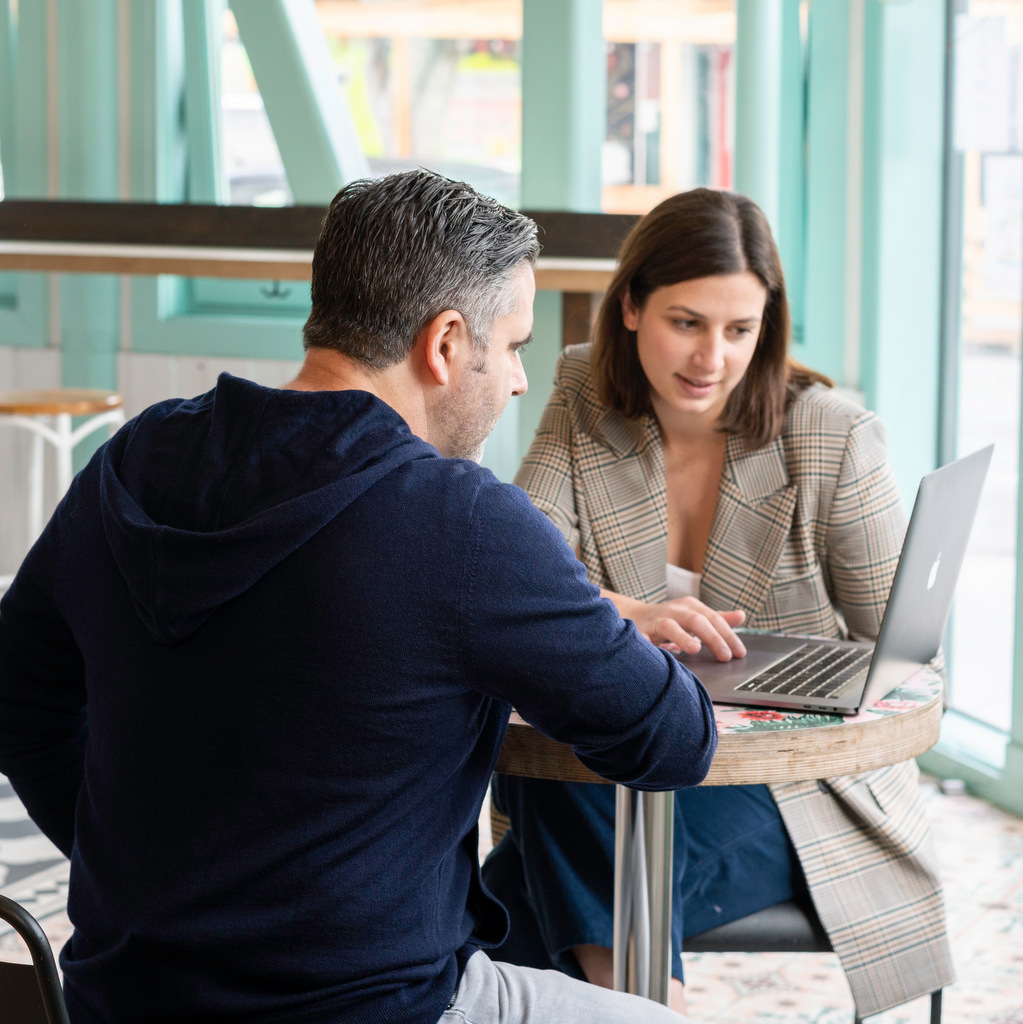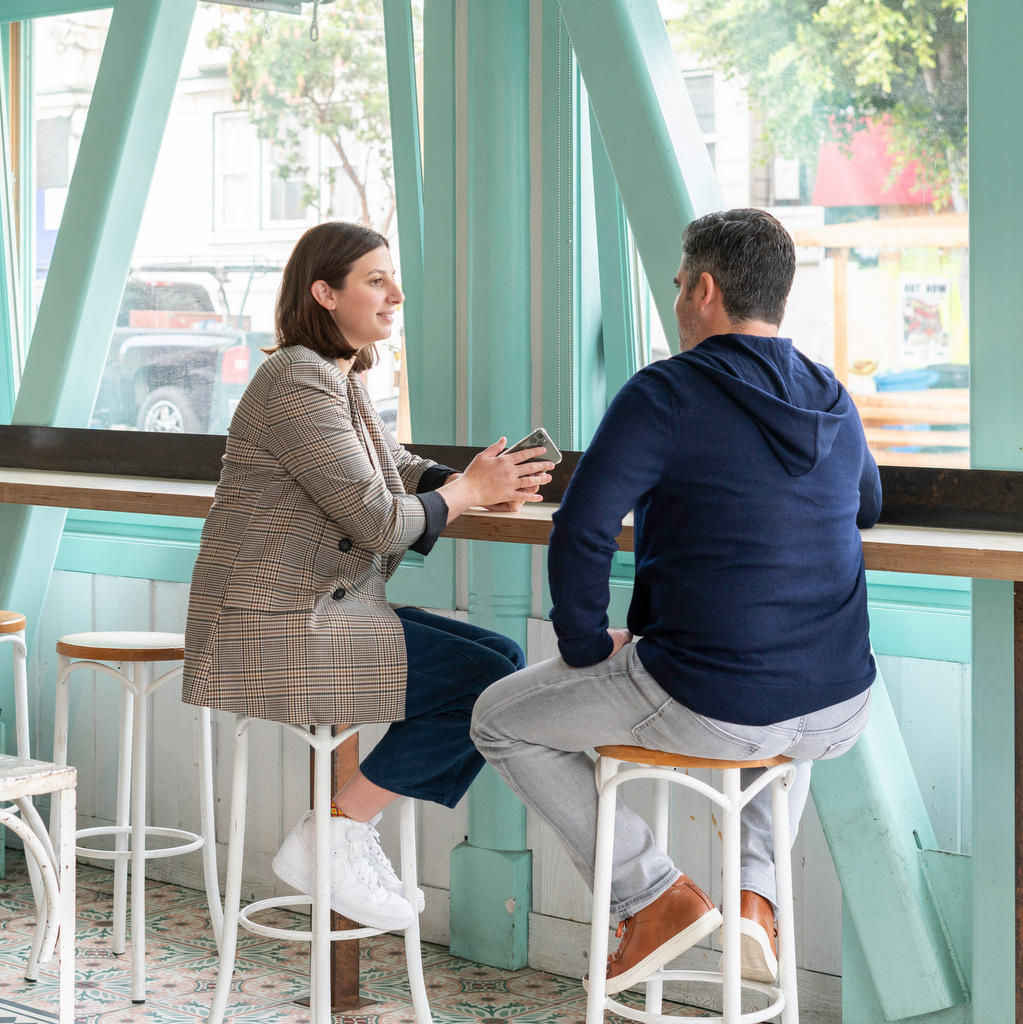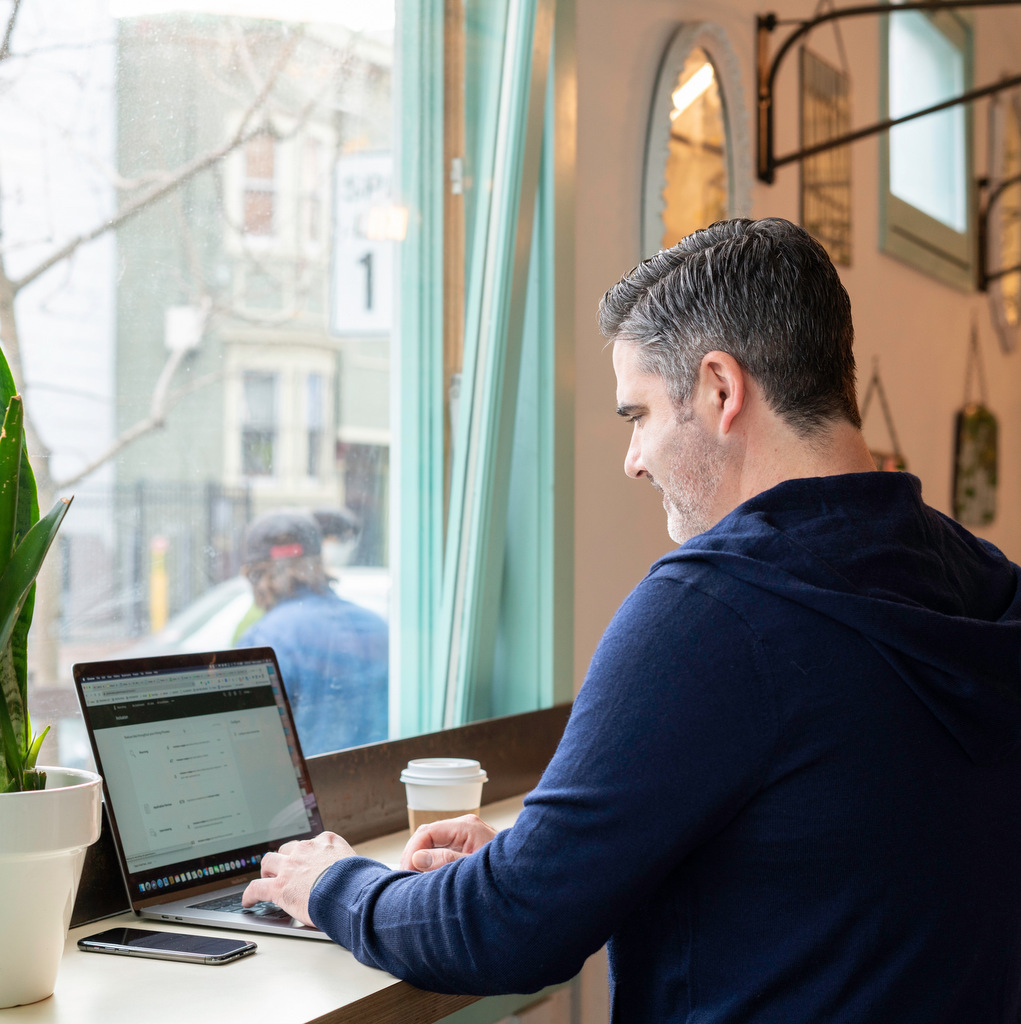The Art of Building Rapport with Interviewees
These FAQs address the most common questions that people may have when it comes to planning, preparing for, conducting, and analysing interviews for various purposes. These FAQs are applicable to a wide range of industries and situations, such as academic research, radio broadcasting, podcast or webinar hosting, journalism, job interviews, and many others. The information provided also delves into specific aspects of the interview process, including planning for individual or group/focus group interviews, important considerations during interviews, effective questioning techniques and building rapport with interviewees, different interviewing styles, and the steps to review and interpret the outcomes after the interview has taken place.
What Does it Mean by Building Rapport with Interviewees?
In interviews, whether you’re a researcher, journalist, podcaster, or a human resource manager, there is an essential element that can elevate the quality of your interactions and ensure a great interview – building rapport with interviewees. But what exactly does it mean to establish rapport with those you interview?
“Interviewee rapport” refers to the interpersonal connection and trust that you create with your interview subjects. It’s the art of forging a genuine and comfortable relationship that allows your interviewees to open up, share their insights, and engage in a meaningful conversation. Building rapport with interviewees is not just a skill; it’s an art, a delicate dance between two individuals that can be the difference between a mundane exchange and a captivating dialogue.
In this guide, we will explore ten key strategies to master the art of creating a rapport with someone you interview. We’ll delve into the importance of rapport, how to prepare effectively, and the essential steps to take for building a strong connection with your interviewees.
Top 10 Tips For Building Rapport With Interviewees
#1 Understanding the Importance of Rapport
Building rapport is not a superficial task; it’s the foundation of a successful interview. It sets the tone for the entire conversation and enables interviewees to feel valued, respected, and heard. Building rapport with interviewees is not a superficial task; it’s the cornerstone of a successful interview.

It forms the bedrock upon which the entire conversation is constructed. More than just a polite gesture, it’s the bridge that connects the interviewer and the interviewee on a human level. When you establish rapport, interviewees not only feel valued, respected, and heard, but they also become willing participants in a genuine, two-way exchange of ideas. Think of rapport as the secret ingredient that transforms a standard interview into a memorable, insightful, and authentic conversation. It’s the spark that ignites a fruitful dialogue, enabling you to uncover hidden gems of knowledge and perspective.
For example, consider a job interview where a candidate feels at ease and connected with the interviewer. They are more likely to provide honest answers and present themselves authentically, leading to better hiring decisions.
#2 Preparation is Key
Before the interview, research your interviewee. Familiarise yourself with their background, work, and interests. This preparation demonstrates your genuine interest and can be a great conversation starter.
Before the interview, thorough research on your interviewee is an indispensable step in building rapport with interviewees. Familiarising yourself with their background, work, and interests goes beyond a simple Google search. It’s about understanding the person behind the title or role. This preparation showcases your genuine interest, and when you delve into the nuances of their professional journey, it often paves the way for a deeper and more meaningful conversation. By showing that you’ve invested time in learning about their experiences, you create a solid foundation of trust.
Moreover, this knowledge can serve as a conversational goldmine, allowing you to ask questions that resonate with your interviewee’s passions and expertise. Remember, preparation not only displays your respect for their time but also sets the stage for a smoother and more engaging dialogue.
Let’s say you’re a journalist interviewing an author. Reading their book and understanding their writing style can lead to insightful questions and a more engaging discussion.
#3 Effective Communication
During the interview, communication is vital. Maintain eye contact, listen actively, and ask open-ended questions that encourage in-depth responses.
Effective communication is the lifeblood of any successful interview. It’s the art of not just speaking, but also listening, with intent. Maintaining consistent eye contact demonstrates your undivided attention, signalling to the interviewee that they have your respect and engagement. Listening actively goes beyond simply hearing words; it involves deciphering the underlying emotions, subtext, and nuances in their responses. By doing so, you can ask follow-up questions that dig deeper and encourage in-depth answers. The key is to foster an environment for building rapport with interviewees so that they feel heard, acknowledged, and valued. This, in turn, invites them to open up, leading to a more enriching conversation that brings out their authentic insights.
A podcaster who actively listens to their guest’s anecdotes and follows up with relevant questions can create an intimate and meaningful episode.
#4 Empathy and Respect
Show empathy and respect towards your interviewees. Understand their perspectives and avoid interrupting or dismissing their thoughts.
Empathy and respect are the cornerstones of building rapport with interviewees. Empathy is the ability to put yourself in the interviewee’s shoes, to understand their perspective, and to genuinely care about their experiences and feelings. By showing empathy, you convey that you’re not just there to extract information but to engage in a meaningful exchange of ideas.
Respect is equally vital; it involves acknowledging the interviewee’s expertise and experiences. It means refraining from interrupting or dismissing their thoughts, even if you have a differing viewpoint. These twin pillars of empathy and respect create an atmosphere of trust and collaboration, where interviewees are more inclined to share their knowledge openly and honestly.
For instance, a human resource manager conducting exit interviews should empathise with departing employees’ concerns and suggestions, fostering a positive departure experience.
#5 Authenticity
Be yourself. Authenticity can be contagious, and when interviewees sense your sincerity, they are more likely to reciprocate with their own authenticity.
Authenticity is the linchpin of building rapport with interviewees. It’s about being yourself, unapologetically. When interviewees sense your sincerity, it has a remarkable effect on the dynamics of the conversation. It communicates that you’re not just a professional inquisitor but a fellow human being interested in a genuine exchange.

Authenticity can be contagious; when interviewees perceive it, they are more likely to reciprocate by shedding their professional facade and speaking from the heart. This authenticity not only enriches the quality of the interview but also makes it more relatable to your audience, as it’s human nature to connect with authenticity.
A researcher studying a community should connect with its members on a personal level, showcasing their genuine interest in the subject matter.
#6 Body Language Matters
Non-verbal cues can convey a lot. Maintain an open and welcoming posture, smile genuinely, and use gestures that convey warmth and understanding.
Your body language speaks volumes. It’s a silent but powerful communicator that complements your words. Maintaining an open and welcoming posture, making genuine and warm smiles, and using gestures that convey understanding and warmth can set the tone for a positive and engaging conversation. Effective body language reassures your interviewee that you are approachable and empathetic, making them more comfortable and willing to share their thoughts openly. When you appear genuinely interested through your non-verbal cues, you encourage the interviewee to be more open and expressive.
Journalists interviewing a subject who has experienced a difficult situation should display sensitivity through their body language.
#7 Adaptability
Be flexible during the interview. If the conversation takes an unexpected turn, be prepared to adapt and follow where the interviewee leads.
Adaptability is the flexible thread that weaves through a successful interview. It’s the readiness to pivot when the conversation takes an unexpected turn. Sometimes, the most valuable insights emerge when you follow the interviewee’s lead, allowing the conversation to explore uncharted territories. Being adaptable and open to these detours can lead to unexpected and enlightening discoveries. Whether you’re a researcher, journalist, or HR manager, embracing the unexpected can yield fruitful outcomes and create a dynamic and memorable interview experience.
For example, a business owner conducting market research might discover new customer preferences during an interview. Flexibility allows them to explore these insights further.
#8 Setting the Right Environment
Create an environment that makes interviewees feel comfortable. Ensure privacy, minimise distractions, and consider their preferences regarding location and timing.
Creating the right environment is essential for ensuring interviewees feel comfortable and at ease. Privacy and minimal distractions are crucial elements. A private space allows the interviewee to speak candidly without fear of eavesdropping or interruption.

Minimising distractions ensures that the focus remains on the conversation. Additionally, taking into account the interviewee’s preferences regarding the interview location and timing displays respect for their comfort. This consideration can go a long way in establishing a positive atmosphere for the interview.
A podcast host inviting a celebrity guest to their studio should create a welcoming and relaxing atmosphere for a successful conversation.
#9 Feedback and Validation
Acknowledge the interviewee’s responses and validate their contributions. This reassures them that their input is valuable.
Acknowledging and validating the interviewee’s responses during the conversation is a pivotal aspect of rapport building. This not only reassures them that their input is valued but also reinforces their confidence in sharing more. Show appreciation for their insights, opinions, and experiences. A simple nod, an encouraging phrase, or a genuine “thank you” can make the interviewee feel acknowledged and appreciated. This positive reinforcement helps maintain the flow of the conversation and keeps the interviewee engaged.
In a research setting, a scientist interviewing participants should express appreciation for their time and insights, ensuring future collaboration.
#10 Follow-Up and Gratitude
After the interview, send a follow-up message expressing your gratitude. This small act reinforces the connection you’ve built.
Building rapport with interviewees doesn’t end with the conclusion of the interview. A crucial follow-up step is to express your gratitude for the interviewee’s time and contribution. This small gesture reinforces the connection you’ve built and leaves a lasting impression. It signifies your respect for their input and sets the stage for potential future interactions. Sending a follow-up message, whether through email or a handwritten note, shows your commitment to maintaining a positive and ongoing relationship.
A recruiter who follows up with a thank-you email after a job interview leaves a lasting impression and strengthens the rapport established during the meeting.
Key Tips for Building Rapport with Interviewees
To summarise the key strategies for building interviewee rapport:
- Understanding the Importance of Rapport: Recognise its significance in achieving meaningful interviews.
- Preparation is Key: Research your interviewee to show genuine interest.
- Effective Communication: Listen actively and ask open-ended questions for in-depth responses.
- Empathy and Respect: Demonstrate empathy and respect throughout the interview.
- Authenticity: Be yourself to encourage authenticity in your interviewee.
- Body Language Matters: Use welcoming body language to convey warmth.
- Adaptability: Be flexible to explore unexpected topics.
- Setting the Right Environment: Create a comfortable interview setting.
- Feedback and Validation: Acknowledge and validate your interviewee’s contributions.
- Follow-Up and Gratitude: Send a thank-you message after the interview to reinforce the connection.
In sum, the art of building rapport with interviewees involves a carefully orchestrated interplay of understanding the significance of rapport, thorough preparation, effective communication, empathy, authenticity, body language, adaptability, creating the right environment, feedback, and follow-up. These elements collectively contribute to establishing a strong, respectful, and trusting connection with interviewees, enhancing the quality of your interviews across various fields.
Final Thoughts on Building Rapport with Interviewees
The art of building rapport with interviewees is a skill that can transform your interactions into meaningful conversations. By understanding its importance, preparing effectively, and following the ten key strategies discussed, you can establish a strong connection with your interviewees, whether you’re a researcher, journalist, podcaster, or a human resource manager.
In conclusion, remember that building rapport with interviewees is not just a means to an end; it’s about creating a genuine connection that benefits both parties. By approaching your interviews with empathy, respect, and authenticity, you can unlock the full potential of your interactions and ensure a great interview every time.
Key Piece of Advice: Never underestimate the power of rapport. It’s the gateway to profound insights and compelling stories, and it’s worth the effort.
For further information and assistance with your interview-related needs, consider exploring these valuable resources:
Way With Words offers professional interview transcription services with exceptional accuracy. Their transcripts can be a valuable asset for researchers, journalists, and podcasters, aiding in content creation and analysis.
LinkedIn is an online community of professionals sharing industry knowledge and career paths, as well as interview skills.
